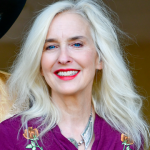Catastrophic consequences could follow loss of USAID
 (Mar. 31, 2025) — President John F. Kennedy founded the United States Agency for International Development (USAID) in 1961, because his administration took global citizenship seriously.
(Mar. 31, 2025) — President John F. Kennedy founded the United States Agency for International Development (USAID) in 1961, because his administration took global citizenship seriously.
For the past six decades, USAID has played a key role in sweeping humanitarian efforts including famine relief, mine clearing, smallpox eradication and important initiatives curbing the spread of HIV/AIDS. This work has saved millions of lives.
With USAID funding abruptly halted, the repercussions will be worldwide and potentially catastrophic. According to the Center for Global Development (CGD): “Of the 26 poorest countries in the world, we identify eight where over a fifth of their assistance comes from USAID – specifically, South Sudan, Somalia, Democratic Republic of Congo, Liberia, Afghanistan, Sudan, Uganda and Ethiopia. In all but two of these countries, USAID’s focus is categorized as ‘emergency response.’ This suggests aid is being used to address acute needs within these countries.”
Ethiopia, for example, received nearly $1 billion in USAID funding in 2023 to provide direct relief to a population devastated by drought and civil conflict. Most of this money bought grain, medication, high-energy bars to feed malnourished children, and water and tents for people without shelter.
USAID funds studies all over the world – working toward finding cures for a variety of public health issues.
According to Public Citizen, the Trump administration has frozen upwards of 30 enrolled studies, including those testing treatments for malaria, cholera, tuberculosis and HIV. This effectively abandons thousands of participants.
Public Citizen Health Research Group director Dr. Robert Steinbrook placed the unprecedented freeze in sharp focus: “Abandoning ongoing clinical trials for reasons that are not scientifically sound is an egregious violation of clinical research ethics and defies common sense.
“The United States is a signatory to the World Medical Association Declaration of Helsinki, which sets forth the ethical principles underlying medical research, such as protecting the health and rights of all participants, caring for them throughout the trial and publicly reporting the results so the information can advance medical knowledge,” he added. “When a clinical trial is abandoned, the participants are put at risk without justification and trust in all clinical research is shattered.”
Abby Maxman, president/CEO of the U.S. arm of the venerable Oxford Committee for Famine Relief (Oxfam America), unequivocally declared: “There is not a single area of development and humanitarian assistance USAID has not been involved in. People at USAID have been thought leaders implementing ideas at scale, in wide-ranging areas – I don’t think there is a major area of the development system in which USAID did not bring its technical know-how, research and evidence.
“We have already witnessed the life-threatening, wide-ranging impacts of a temporary disruption to U.S. foreign assistance,” she continued. “This action would expand those disruptions exponentially by punishing the people who are already suffering the most, undermining U.S. credibility and interests, and halting decades of progress toward a safer, more equal world.”
Send comments to Nathalie Montijo at newwavenightingale@gmail.com.

Nathalie Montijo
Nathalie Raven Archangel-Montijo holds a rather interesting array of degrees and certifications, including master’s in nursing and traditional Chinese medicine (TCM). She has post-master certification as an adult geriatric primary care nurse practitioner (AGPCNP) and a license to practice acupuncture in California (L.Ac). To round all that out, she is certified in infection prevention and control (CIC) and as an advanced certified Hospice and palliative care nurse (ACHPN).
She also performs in the outlaw country band, Nineteen Hand Horse.
